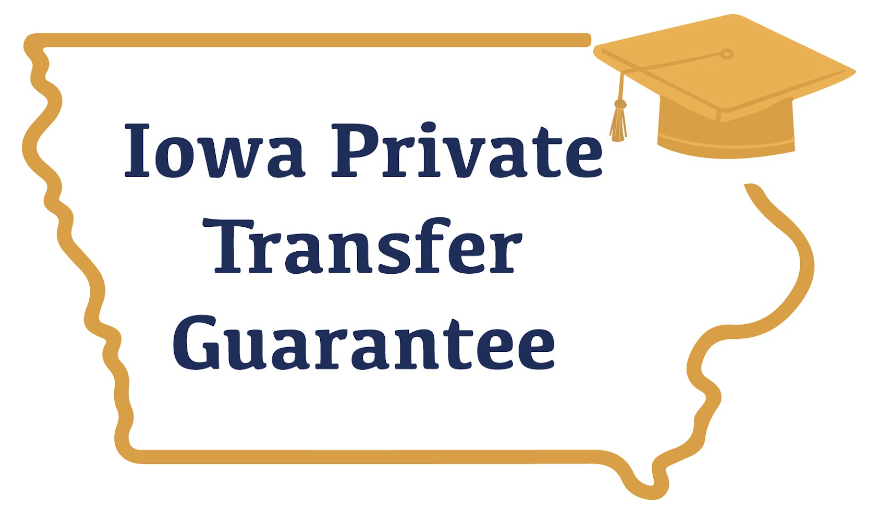A Closer Look: Michelle Krefft
Director of business services, Iowa Vocational Rehabilitation

As the COVID-19 pandemic began hitting Iowa’s economy, Iowa Vocational Rehabilitation Services heard local businesses open up about the struggle to staff customer service jobs. IVRS, which serves Iowans with disabilities seeking to enter the workforce, found opportunity.
The pandemic has opened a range of work-from-home options up to IVRS clients in organizations that had previously never supported work-from-home employees, said Michelle Krefft, director of business services at IVRS.
“It was urgent, they need people now. How do you get people immediately ready and get them to hit the ground running?” Krefft said.
In October, IVRS launched monthlong Customer Service Academy sessions to quickly train clients on how to interact with customers, offer assistance and handle phone calls for Iowa organizations that reported a high need for customer service-type jobs to be filled.
Adapting “has been challenging, but also amazing because it created opportunities that we didn’t even know were there,” Krefft said.
How do you describe your current role?
I work with a lot of businesses throughout the state of Iowa to educate them on the benefits of hiring people with disabilities. We have 28 business staff [members] here in Iowa, and I also serve on our national team. Vocational Rehabilitation is a federally funded program, and every state has a VR program, and every state has a VR business director. At the national level we meet quite often and talk about how we are serving our businesses nationally, and making sure that the transition of services from state to state is in a good flow.
How has the pandemic affected your services this year?
We are finding so many businesses have shifted to working more remotely, and those that are still essential workers — a lot of those are entry-level jobs, and many of the candidates we serve have compromised immune systems. The challenge becomes working with individuals looking to find entry-level work when [most] would be in public. A great solution is that there are so many more work-from-home opportunities that we are able to find work-from-home for people with compromised immune systems that six to eight months ago we wouldn’t have been able to find.
That’s been an amazing opportunity for our job candidates, and especially those in rural Iowa with no transportation. Now we’re able to go to work and not have to think about how they’re going to get to work, or if they have physical disabilities, and the difficulty with getting to work with transportation or the workplace accommodations. We’re able to make those accommodations for them at home, and that’s been wonderful.
At Voc Rehab, we’ve really been able to shift all of our services to a virtual platform. We have a counselor in every single high school in Iowa, and we are now able to Zoom in and provide services to high schoolers through Zoom. Our job clubs have all moved to virtual meetings with our job candidates … and we’ve been able to partner with some of our businesses. They’ve said customer service is so important, and it would be awesome if there could be an academy that teaches the basic customer service skills. We have a monthly Customer Service Academy that is on a Zoom platform, and we’re doing virtual job fairs in Iowa City, Cedar Rapids and a couple other parts of the state.
You can help so many more people when you’re not driving hours a day. Our staff serve all 99 counties, but we don’t have staff that live in every county. We did have staff that traveled into the counties, maybe traveling two hours each way to get to that county. … Now, being able to be on Zoom, they can see a person an hour for eight hours a day, and double the amount of people they were seeing and still get their paperwork done.
We’re really seeing an increase in the ability to see more people. My job, I covered the entire state and I was on the road all the time. It’s been really difficult because I love to travel, I love to be with people. Now I do it through Zoom, so it’s completely different.
Have you seen an increase in people who are seeking Voc Rehab services?
The numbers have [gone] down a little bit from where they were last year. I think it’s because our staff were in the schools, our staff were in the workforce centers, our staff were in the colleges. So that job seeker would come into the workforce [center] and say, “I need a job, I have a disability.” … There’s less traffic coming into the workforce centers, and then, not being in schools — you automatically get more referrals when you’re there, and I would say referrals went down a little bit.
Our team has gotten together and started talking about how do you become present when you’re not physically present? We did a transition where every day they had a different theme. So Monday they were talking about taking care of yourself, on Tuesday they went out into a business and did a virtual tour, then our students were able to join, and it was really quite popular. We were able to engage teachers and other personnel from the school and our colleges, so we’re present without being present, if that makes sense. We’re learning how to navigate the virtual world and make sure that people still know “Hey, we’re here, we’re still helping people.”
We still don’t know the number for sure, but [there were] 1,100 Iowans with disabilities that we helped gain careers during the pandemic.
What do businesses need to know to best reach these Iowans with disabilities?
If they reach out to us, our business team is still able to go in and work with businesses upon request. We can go in and do accessibility kinds of things, and look for accommodations. We can look at rehoming and help with restructuring. There’s so many different things that we could do to help a business either retain or find an employee with a disability.
Sometimes we’re even able to look at applications and the job descriptions and the website, and make recommendations on how to make it a more disability-friendly website, or a more disability-friendly application. We’re here, we’re paid for by the taxpayers already. We serve over 14,000 Iowans with disabilities right now who are all in the process of looking for work. Our counselors are working with our candidates on how to be a good employee: What does it mean to go to work on time, what do you have to do to prepare for that job, all of those things that I wish somebody would have worked with me on when I was in high school.
What kinds of support do businesses ask for?
We’re finding that businesses [with] essential workers, their needs went up dramatically. If you’re thinking about Walmart, Target, Hy-Vee … it increased the amount of people they needed overnight, and they didn’t have time to onboard them. So they came to us and told us exactly what they were looking for, and the skill sets the person needed to have. That was part of our Customer Service Academy. We were then able to get people selected and ready to go in and start working without a lot of support. If they did need the support, we sent staff in with them to provide the support, just because there was no time.
We were able to immediately get [businesses] some individuals, but in the meantime our staff took videos of the different jobs because it’s ongoing, and you need to fill the need right now, but then you’re going to have to fill the need again in a week. Staff took videos, and then we came back and held virtual platforms where people could watch the video. We talked them through the job, we paused it and made sure that they were understanding the job, and we would maybe meet them at the place and help them become comfortable and kind of walk them through the job. But that would be more for the entry level — hospitals need people, nursing homes, and that’s a little bit more of a challenge.
Is there anything you’re reading/watching/listening to lately?
I was never the person that relaxes. Reading a book was an audiobook in my car when I was driving from one city to another. For me, a slowed-down pace of not going anywhere and being at home with my family, I watched TV for probably the first time in my life. I started watching a show with them, and it was “Schitt’s Creek.” I thought, this pandemic is like the show. … I was always on the go, always out and about, always doing this and I forgot about what I had at home with my family. This whole pandemic and watching the show, I [realized], “You need to slow down and take advantage of what’s in front of you.” What’s in front of me is amazing.









